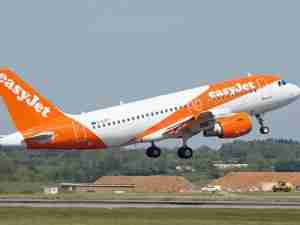U.S. Trade Panel Rules Bombardier Sales May Have Hurt Boeing
By: Andrew Mayeda | Jun 09 2017 at 05:34 PM | Air Cargo
A U.S. trade court ruled that Boeing Co.’s commercial jet business may have been harmed by sales of passenger planes by Bombardier Inc. at less than fair value. The court decision allows Boeing to continue pressing for tariffs against its Canadian competitor.
The U.S. International Trade Commission ruled Friday that there’s reasonable indication that Boeing’s business may have been hurt or threatened by Bombardier sales in the U.S. of its C Series jets.
The Commerce Department is investigating separately whether to impose duties on the Bombardier planes. A negative ruling by the ITC would have ended the two investigations. Before the U.S. imposes any duties, the ITC would still have to issue a final ruling on the question of how Boeing’s business was affected.
Boeing has accused Bombardier of selling its C Series jets in the U.S. at “absurdly low” prices, while benefiting from unfair government subsidies in Canada. The U.S. planemaker asked the ITC in April to find that the company has suffered injury to its business at the hands of Bombardier and to recommend that the Commerce Department slap duties on the C Series.
Bombardier’s widely traded Class B stock tumbled 7.1 percent to C$2.37 at the close in Toronto, the most since June 27, 2016. Boeing was little changed at $190.03.
Planemaker Disputes
The tussle echoes longstanding U.S.-Europe disputes stemming from the rivalry between Boeing and Airbus SE. A World Trade Organization panel found Friday that billions of dollars in government subsidies that flowed to Boeing now comply with international rules, except for tax breaks from the state of Washington that continue to disadvantage Airbus.
“The ITC and WTO ruling are scaring people but I don’t buy that,” said Nicholas Heymann, an analyst with William Blair & Co. “Ultimately it’s not going to prohibit the commercial success of the C Series, as I see it.”
Bombardier spokesman Mike Nadolski said in an email that the company had expected the preliminary ITC decision given “the very low bar for Boeing in this first step of the process” and that a more detailed review will show Boeing’s claims are baseless.
The allegations opened a new front in trade tensions between the U.S. and Canada, which have intensified since President Donald Trump took office vowing to renegotiate the North American Free Trade Agreement. The U.S. earlier this year imposed duties on Canadian lumber, reigniting a longstanding dispute, and Trump has complained about Canadian protections for dairy farmers. Talks to revamp Nafta are expected to start after mid-August.
Seeking Customers
Following the ruling on Friday, Canadian Foreign Affairs Minister Chrystia Freeland said the government will defend Bombardier’s interests, adding that a review is underway over military procurement that relates to Boeing.
Tariffs could hurt Bombardier’s efforts to win customers for its largest-ever jetliner. The last major firm order for the plane—Delta Air Lines Inc.’s for at least 75 jets—dates to April of last year.
Boeing said that sale set a “new, low price ceiling” that was depressing its U.S. jetliner prices. The Atlanta-based carrier agreed to purchase the cutting-edge Bombardier jets for $19.6 million apiece, less than the $33.2 million cost of manufacturing the airplanes, Boeing said. Bombardier disputes the $19.6 million figure.
The Canadian government earlier this year pledged C$372.5 million ($275 million) to Bombardier to finance two jet programs, including the C Series. Last year, Quebec’s provincial government invested $1 billion in the jetliner.










